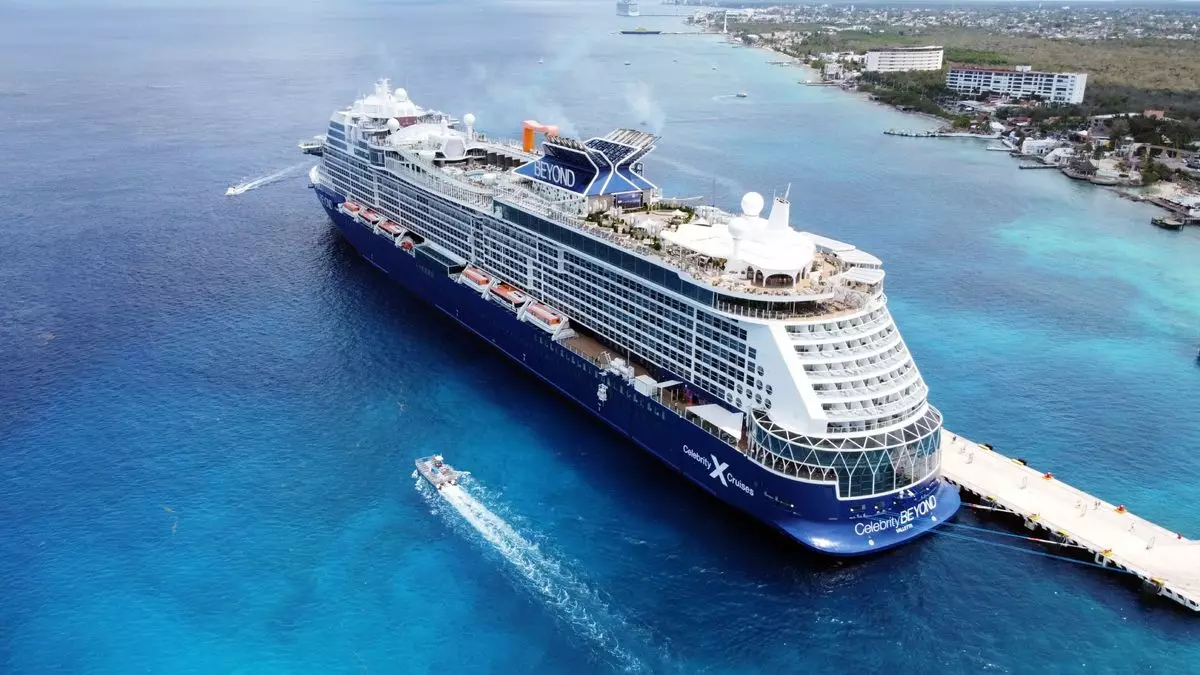Recently, Mexico’s Congress approved a controversial $42 passenger tax aimed at cruise travelers, raising concerns among industry stakeholders about the potential ramifications on the tourism economy. The Florida-Caribbean Cruise Association (FCCA), representing major cruise lines, has warned that this new levy could deter tourists from choosing Mexico for their cruise itineraries, marking a possible shift in the landscape of cruise tourism in the region. Critics, including top executives from leading cruise companies, argue that the tax may render Mexico a less competitive choice compared to other Caribbean destinations, resulting in decreased visitor numbers and economic strain.
The implementation of this tax brings about a staggering increase in costs for prospective cruise passengers. The FCCA’s analysis suggests that cruise tourism to Mexico would become 213% pricier than average Caribbean ports, a figure that could inhibit the willingness of travelers to book Mexican cruise itineraries. With booth executives from major cruise lines like Royal Caribbean and Carnival Cruises expressing concern, the financial burden of the new passenger tax seems considerable. The FCCA reports that in the past cruise year, Mexican ports generated approximately $62.6 million in port fees, indicating substantial financial activity in cruise tourism. However, the addition of a hefty $42 head tax threatens to significantly reduce the net profitability of these cruises, most of which cannot simply pass on such an expense to customers without risking a drop in demand.
Effects on Key Tourist Regions
Particular attention has been directed towards Quintana Roo, one of Mexico’s major cruise hubs, known for its popular ports in Cozumel and Costa Maya. This state is dependent on cruise tourism for roughly 40% of its gross domestic product (GDP), and the FCCA emphasizes that the consequences of reduced cruise traffic could be catastrophic for the region’s economy. Moreover, projections for 2025 indicate that Mexican cruise ports are set to accommodate over 10 million passengers—an opportunity that might drastically diminish with impending changes in taxation. The industry is particularly concerned that diminishing tourist flows will hamper local businesses that rely on the cruise market for their survival.
In addition to immediate financial repercussions, the FCCA highlights long-term impacts on investment in the Mexican cruise industry. Billions of dollars in planned developments aimed at revitalizing tourist infrastructure have been jeopardized by this new tax policy. The FCCA has emphasized that such investments would not only aid in economic recovery—particularly for areas devastated by natural disasters like Acapulco—but also support the creation of jobs and social programs beneficial to local economies. The added burden of the tax may lead cruise lines to reassess or even abandon plans that would have fostered employment for thousands of local workers and facilitated broader economic benefits.
The Need for Industry Dialogue
A critical point made by the FCCA is the apparent lack of communication between the Mexican government and cruise industry stakeholders regarding the decision to impose the new tax. Michele Paige, the CEO of FCCA, expressed disappointment at the absence of consultation, remarking on the longstanding collaboration that has existed between the cruise industry and Mexico. The abrupt enactment of this tax suggests a misalignment of priorities, potentially alienating a vital partner in the tourism sector. Industry leaders stress that dialogue is essential to ensure policies reflect the economic realities faced by both parties, thereby fostering a sustainable tourism environment.
Mexico’s recent decision to approve a $42 passenger tax on cruise tourists raises critical concerns about its effects on the nation’s tourism economy. With prominent cruise lines voicing their apprehensions regarding increased costs and decreased demand, the ramifications could ripple throughout Mexico’s economy, particularly in regions reliant on cruise tourism. The urgent need for constructive dialogue between governmental bodies and industry leaders stands out as a potential pathway towards mitigating negative outcomes, fostering a mutually beneficial relationship for years to come. As the travel landscape continues to evolve, maintaining an attractive and accessible environment for tourists will be pivotal for Mexico’s tourism industry.


Leave a Reply